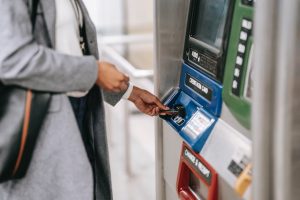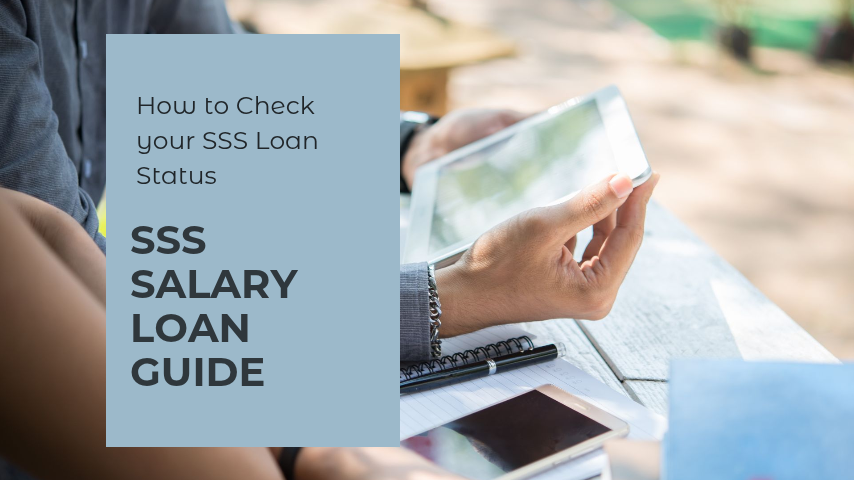Philippine authorities have taken strict measures, banning numerous online lending platforms and revoking the licenses of non-compliant companies. In this article, we’ll explore which online loan apps have been banned, how to identify illegal lenders, and what steps you can take to protect yourself from financial scams.

What Online Loan Apps Are Banned In The Philippines?
Illegal online loan apps have caused significant financial and emotional distress to Filipino borrowers. These unregulated platforms often lure individuals with quick approvals and minimal requirements, only to impose excessive interest rates, hidden charges, and unethical debt collection methods. Many borrowers fall into a debt trap, struggling to repay loans that balloon far beyond the original amount.
In recent years, authorities have cracked down on these predatory lenders. In 2022 alone, the Philippine Securities and Exchange Commission (SEC) shut down over 80 illegal loan apps, citing violations such as unauthorized operations, excessive fees, and harassment of borrowers. Additionally, a report from the National Privacy Commission (NPC) found that 40% of complaints related to online lending involved privacy violations, where apps illegally accessed borrowers’ personal contacts and used threats or public shaming to force repayment.
Beyond financial exploitation, these illegal apps also cause mental and emotional harm. Many victims report experiencing anxiety, depression, and even public humiliation due to aggressive collection methods, including sending defamatory messages to family members and employers. Some cases have even led to tragic consequences, with borrowers resorting to desperate measures due to unbearable pressure.
With the increasing number of victims, the government continues to take steps to ban fraudulent loan apps and protect consumers. However, the fight against these online loan scammer list of lenders is ongoing, and borrowers must remain vigilant to avoid falling into their traps.
What Kinds of Illegal Loan Apps Exist In The Philippines?
The list of illegal online lending apps in the Philippines can be categorized into several types, each posing unique risks to borrowers:
- Scam Apps – These are fraudulent platforms that impersonate legitimate lenders to steal personal information or extract upfront fees from borrowers without providing any loan. They often disappear once they have achieved their malicious intent.
- Unregistered Lending Companies – These entities operate without the necessary licenses or registrations like those with SEC registered loan app 2024, required by Philippine law. Without regulatory oversight, they may impose unfair terms and excessive interest rates or engage in unethical collection procedures.
- Companies with Revoked or Suspended Certificates – Some lending companies initially operate legally but have their licenses revoked or suspended due to violations such as non-compliance with reporting requirements, unjust debt collection tactics, or charging exorbitant interest rates. For instance, in 2024, the SEC issued cease and desist orders against six financing and lending companies for non-compliance with regulatory requirements.
Understanding these distinctions is crucial for borrowers to identify and avoid illegal loan apps that could lead to financial harm.
List of Illegal Online Loan Apps in the Philippines
The SEC regularly updates its list of banned online lending platforms to protect consumers. As of 2024, several online loan apps have been identified and prohibited from operating due to various violations.
What lending apps are closed by the sec?
- Cash Bus
- Cash Flyer
- Cash Warm
- Cashafin
- Cashaku
- Cashope
- Cashwhale
- Credit Peso
- Flash Cash
- Jk Quickcash Lending
- Light Credit
- Loan Motto
- Moola Lending
- One Cash
- Pautang Peso
- Pera Express
- Peso Now
- Peso Tree
- Peso.ph
- Pesomine
- Pinoy Cash
- Pinoy Peso
- Qcash
- Sell Loan
- Supercash
- Utang Pesos
Fake Loan Apps and Scams
Beyond officially banned platforms, borrowers must be cautious of fake loan apps designed to defraud users. These scams often lure individuals with promises of quick cash, only to steal personal information or charge hidden fees. In some instances, these list of illegal online lending apps have no legitimate business operations and exist solely to deceive unsuspecting borrowers.
Revoked Lending Companies in the Philippines
The SEC has also taken action against registered lending companies that have violated regulations. For example, in April 2024, the SEC revoked the license of Copperstone Lending for failing to comply with the Truth in Lending Act and engaging in unfair debt collection procedures.
Loan Apps with Revoked Certificates of Authority to Operate as a Financing or a Lending Company
The Philippine Securities and Exchange Commission (SEC) has been actively revoking licenses of lending companies that violate regulations, engage in unfair practices, or operate without proper authorization. As of August 2023, the SEC has revoked the primary registration of 2,084 lending companies for non-compliance with Republic Act 9474, also known as the Lending Company Regulation Act.
In September 2019, the SEC issued cease and desist orders against 19 online lending companies due to complaints of invasion of privacy and harassment. These companies include:
- Instant Pera
- QuickPera
- Lendmo Philippines
- Binixo
- CashBus
- Cashcat
- Cashuttle
- Crazy Loan
- Flash Cash
- Happy2Peso
- Hatulong
- MeLoan
- MoneyTree Quick Loan
- Pera Express
- Pera4u
- Peramart
- PesoLending
- QuickPeso
- Umbrella
It’s important to note that the SEC regularly updates its list of revoked and suspended lending companies 2024. For the most current information, you can visit the SEC’s official website.
Borrowers are strongly advised to verify the legitimacy of lending companies before engaging in any transactions to avoid falling victim to illegal or predatory lending practices.
How A Lender Can Become Illegal?
A lender can transition from legal to illegal status due to various infractions, including:
- Operating Without Proper Registration – Engaging in lending activities without securing the necessary licenses from regulatory bodies like the SEC is illegal.
- Non-Compliance with Regulatory Requirements – Failure to adhere to mandated reporting, transparency, and operational standards can lead to the suspension or revocation of a lender’s license.
- Engaging in Unjust Debt Collection Practices – Utilizing harassment, threats, or public shaming to collect debts violates ethical standards and legal provisions. For example, some online lending platforms have been reported for invading borrowers’ privacy and employing abusive collection tactics, leading to regulatory actions against them.
- Charging Excessive Interest Rates – Imposing interest rates beyond the legal limits set by authorities constitutes a violation. As mentioned earlier, some illegal loan apps have been found to charge interest rates higher than those allowed by the Philippine government.
Lenders engaging in such practices not only breach legal standards but also jeopardize the financial well-being of borrowers.
Who Checks The Legality Of Online Loan Apps?
Several regulatory bodies in the Philippines are tasked with overseeing the legality and ethical operation of online loan applications:
Securities and Exchange Commission (SEC)
The SEC is the primary regulatory authority overseeing the registration and operation of lending and financing companies in the Philippines. It ensures that these entities comply with the Lending Company Regulation Act and other pertinent laws. The SEC has the power to:
- Grant or Revoke Licenses – Authorize or withdraw the authority of lending companies to operate based on their compliance status.
- Issue Cease and Desist Orders – Halt the operations of entities found violating regulations or operating without proper authorization.
- Impose Penalties – Levy fines and other sanctions on companies that breach legal and ethical standards.
For instance, the SEC has revoked the licenses of several lending companies due to non-compliance with regulatory requirements and involvement in illegal activities.
National Privacy Commission (NPC)
The NPC is responsible for enforcing data privacy laws in the Philippines. In the context of online lending apps, the NPC ensures that borrowers’ personal information is collected, stored, and used in compliance with the Data Privacy Act. The NPC has the authority to:
- Investigate Complaints – Look into allegations of data privacy violations by lending companies.
- Impose Sanctions – Penalize entities that misuse personal data or fail to protect it adequately.
- Issue Compliance Orders – Mandate corrective actions for companies found violating data privacy regulations.
For example, the NPC has summoned online lending operators for complaints related to data privacy violations and harassment.
Credit Information Corporation (CIC)
The CIC is tasked with collecting and disseminating credit information to establish a centralized credit information system. Its functions include: monitoring the creditworthiness of lending companies and ensuring that registered financial institutions adhere to ethical lending practices.
- Providing Transparency for Borrowers – Allowing individuals to check their credit history and identify potential fraudulent lenders.
- Working with Regulators – Assisting the SEC and NPC in identifying non-compliant or illegal lending firms.
The CIC helps prevent predatory lending by promoting transparency and accountability in the credit industry.
Legal Consequences For Violators
Engaging in illegal lending practices comes with serious repercussions, including hefty fines, imprisonment, and civil liabilities. Authorities impose strict penalties to protect borrowers and uphold financial regulations.
Penalties for Operating Without Registration
Engaging in lending activities without proper registration under R.A. No. 9474 carries severe consequences. Offenders may face fines ranging from several thousand pesos to hundreds of thousands, along with imprisonment spanning six months to ten years, depending on the severity of the violation. Furthermore, the Securities and Exchange Commission (SEC) has the authority to enforce administrative penalties, including the permanent disqualification of company officers and directors.
Violations of the Data Privacy Act
Misuse of personal data comes with strict penalties under the Data Privacy Act. Individuals found guilty may be sentenced to imprisonment for up to seven years and fined as much as five million pesos, depending on the gravity of the infraction.
Criminal Liabilities for Harassment and Threats
Those who engage in harassment, coercion, or defamatory acts such as libel, as defined under the Revised Penal Code, may face both financial penalties and prison sentences in accordance with applicable legal provisions.
Contempt and Civil Lawsuits
Illegal lenders who persist in harassing or defaming borrowers despite court orders may be charged with contempt. Additionally, affected borrowers have the right to seek civil damages for emotional distress and reputational harm, pursuing claims for both moral and exemplary damages.
How Can I Check If A Loan Application Is Legal?
With the rise of online lending platforms, borrowers must be extra cautious before applying for a loan. Many list of illegal online lending apps operate without proper authorization, putting borrowers at risk of fraud, harassment, and financial exploitation.
To ensure a loan application is legal, follow these steps:
Check Registration
The first step in verifying a loan app’s legitimacy is to check if it is registered with the Securities and Exchange Commission (SEC). In the Philippines, all lending and financing companies must be licensed under Republic Act No. 9474 (Lending Company Regulation Act). The SEC regularly updates its list of registered and revoked lending companies, which is publicly available on its website.
A legitimate lending company should have:
- A valid Certificate of Authority to Operate from the SEC
- A company registration number
- A publicly available business address
If a loan app does not appear in the SEC’s records, it is likely operating illegally and should be avoided.
Verify Credentials
Beyond SEC registration, check if the loan app has clear and transparent loan terms. Legitimate lenders provide complete details on:
- Interest rates and fees
- Repayment schedules
- Penalties for late payments
- Customer service contact details
Illegal loan apps often hide fees, impose excessive interest rates, or lack proper terms and conditions. Additionally, verify if the lender has a physical office and a functional website with official contact information. If the company refuses to disclose this information, it is a major red flag.
Check State Registration
In addition to national regulations, some loan providers may need local government permits or accreditation from financial authorities.
Check if the lending company is registered with:
- The Bureau of Internal Revenue (BIR) for tax compliance
- The Department of Trade and Industry (DTI) for business legitimacy
- The Bangko Sentral ng Pilipinas (BSP) if the lender engages in financing or digital payments
Illegal loan apps typically avoid regulatory oversight and may not have the required local business registrations.
Read Reviews
Before applying for a loan, research what other borrowers say about the lender. Look for customer reviews on Google, social media, and financial forums to identify any red flags, such as:
- Unprincipled debt collection tactics (harassment, public shaming, or threats)
- Unexpected fees and hidden charges
- Data privacy violations, such as accessing a borrower’s phone contacts without permission
- Difficulty in reaching customer service
Additionally, check the National Privacy Commission (NPC) for complaints regarding data breaches or privacy violations related to the loan app.
Study the History of a Company
Understanding a company’s history can reveal past issues that might affect your decision to engage with them. Some lending companies have had their licenses revoked due to violations but later reinstated after compliance. For example, Fast Coin Lending Corp. had its license revoked by the SEC for operating without the necessary secondary license. Similarly, Populus Lending Corp. faced revocation due to non-compliance with lending regulations.
By following these steps, borrowers can avoid fraudulent loan applications and ensure they only deal with legitimate, SEC-registered lenders.
What Should You Do If You Are A Victim Of An Illegal Loan App?
Falling victim to an illegal loan app can be a distressing experience, often involving excessive interest rates, harassment, privacy violations, and even threats. If you find yourself in this situation, it is crucial to take immediate action to protect yourself and seek legal remedies.
Follow these steps to ensure your safety and hold the illegal lender accountable:
Gather Evidence
The first step is to document all interactions and transactions with the illegal lender. This evidence will be essential when filing complaints with authorities.
Be sure to collect:
- Screenshots of conversations with the lender, including threats, harassment, or misleading statements
- Loan agreements, payment receipts, or transaction history showing the amount borrowed and repayment terms
- Call logs or recorded voice messages, especially if the lender engaged in abusive collection practices
- Emails or messages from unauthorized third parties who may have received your personal data
Having a well-documented record strengthens your case and makes it easier for authorities to take legal action against the lender.
Contact the Securities and Exchange Commission (SEC)
The Securities and Exchange Commission (SEC) is responsible for regulating lending companies in the Philippines. If you have been victimized by an unregistered or revoked lending entity, file a formal complaint with the SEC’s Corporate Governance and Finance Department or the Enforcement and Investor Protection Department.
To file a complaint:
- Visit the SEC website (www.sec.gov.ph) and check if the loan app is listed among revoked or unregistered companies
- Submit a complaint via email or through their official channels, detailing the illegal lending practices and attaching your collected evidence
- Follow up on your complaint to track any progress in their investigation
The SEC has the authority to shut down illegal lending companies and issue public warnings to protect other consumers.
Report to the National Privacy Commission (NPC)
If the illegal loan app misused your personal data, such as:
- Accessing your contact list and sending messages to family or friends
- Publicly posting your personal information to shame or harass you
- Selling or sharing your details with third parties
Then you should report the violation to the National Privacy Commission (NPC).
To file a complaint:
- Visit the NPC website (www.privacy.gov.ph) and check the complaint procedures
- Provide proof of unauthorized data processing, such as screenshots of messages sent to your contacts or online posts containing your personal information
- Submit your complaint through the NPC’s online portal, email, or in-person office
The NPC can investigate data privacy breaches and impose penalties on violators under the Data Privacy Act of 2012.
Notify Law Enforcement (PNP or NBI)
If the loan app’s operators have engaged in criminal activities, such as:
- Threats of violence or extortion
- Harassment through repeated calls, texts, or online shaming
- Unauthorized deductions from your bank account
You should report them to the Philippine National Police (PNP) Anti-Cybercrime Group or the National Bureau of Investigation (NBI) Cybercrime Division.
To file a police report:
- Visit your nearest PNP Cybercrime Office or NBI office
- Provide your evidence of threats, extortion, or fraudulent transactions
- Request assistance in tracking the lender’s online activities and digital footprints
Law enforcement agencies can pursue legal charges against illegal lenders, helping to stop their abusive practices.
Consult a Lawyer
Illegal loan apps often exploit legal loopholes, making it difficult for victims to defend themselves. Consulting a lawyer can help you:
- Understand your rights under consumer protection laws
- Determine whether you are still liable for repayment, especially if the lender is unregistered
- Pursue civil or criminal cases against the illegal loan provider
Many victims hesitate to take legal action due to fear of retaliation or financial costs, but a lawyer can guide you through the process and help you recover damages or file legal complaints.
Inform Your Financial Institution (If Applicable)
If the illegal loan app has unauthorized access to your bank account or digital wallet, take immediate action to prevent further losses.
- Notify your bank or e-wallet provider (e.g., GCash, PayMaya) and request to block transactions from the fraudulent lender
- Change your online banking passwords and security questions
- Monitor your account statements for any suspicious transactions
Many financial institutions have fraud protection measures in place, and acting quickly can prevent further unauthorized withdrawals.
Spread Awareness to Protect Others
Once you have secured your personal information and taken legal steps, consider raising awareness to prevent others from falling victim to the same scam.
- Warn friends and family about the illegal loan app
- Post your experience on social media or consumer forums
- Report the app to Google Play Store or Apple App Store to have it taken down
By sharing your experience, you can help stop predatory lending practices and protect other borrowers from similar scams.
Conclusion
Illegal loan apps in the Philippines pose significant risks to borrowers, from financial exploitation to harassment and identity theft. While regulatory agencies like the SEC, NPC, and BSP actively work to shut down illegal lenders, borrowers must remain vigilant in identifying and avoiding fraudulent loan apps.
To protect yourself, always verify a lender’s legitimacy, understand loan terms, and report suspicious activities to authorities. If you have been a victim of an illegal loan app, take immediate steps to secure your information and seek assistance. By spreading awareness and exercising caution, you can help create a safer lending environment in the Philippines.











